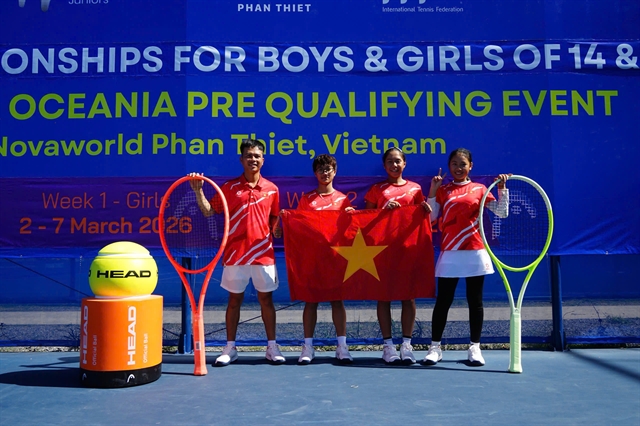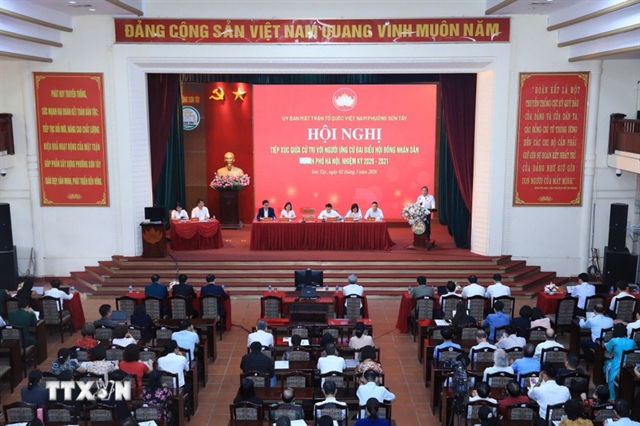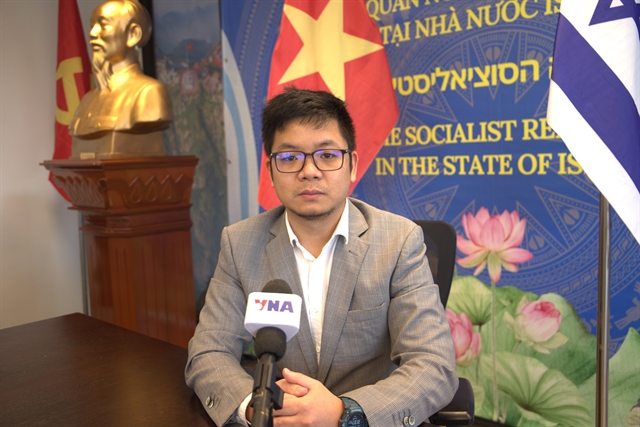 Sports
Sports

 |
| Malaysian players celebrating their 4-0 win against Việt Nam in June. However, the result might not stand after seven players are found ineligible by FIFA. Photo courtesy of the AFC |
Anh Đức
HÀ NỘI The Malaysia national football team has landed in hot water after seven recently recruited heritage players were suspended by FIFA over alleged document forgery and falsification — a development that could shift momentum in the 2027 AFC Asian Cup qualifiers.
These players — Gabriel Felipe Arrocha, Facundo Tomás Garcés, Rodrigo Julián Holgado, Imanol Javier Machuca, João Vitor Brandão Figueiredo, Jon Irazábal Iraurgui, and Hector Alejandro Hevel Serrano — had been called up by the Football Association of Malaysia (FAM) for the June 10 match against Việt Nam, in which Malaysia claimed a 4‑0 victory.
FIFA, after investigating a complaint about player eligibility, found that FAM had submitted 'doctored documentation' to field those athletes and ruled both the association and the players breached Article 22 of the FIFA Disciplinary Code, which concerns forgery and falsification. FAM was fined CHF 350,000 (US$438,000), while the players face 12‑month suspensions.
FAM officials say they intend to appeal, asserting that they followed FIFA rules in registering the players.
If the appeal fails and a default 3‑0 result is awarded, Việt Nam’s 4‑0 defeat could be overturned — offering the Golden Star Warriors a lifeline and a fresh shot at qualifying for the 2027 Asian Cup.
After the news broke, some on social media ridiculed Harimau Malaya for 'cheating'.
Yet Malaysia's case is more than just a laughing stock. It offers a cautionary lesson for emerging football nations seeking heritage players from abroad or naturalisation of foreign players.
The trend of identifying heritage players in more developed football nations is booming globally. The notable success of Indonesian football is a prime example, prompting Việt Nam, Malaysia, Thailand and Cambodia to expand their scouting networks beyond national borders.
But acquiring heritage and naturalised players must first adhere to the rulings of the world’s football governing body and the citizenship laws of the respective nation. FIFA regulations stipulate that a player must either have at least one parent or grandparent born in the country, or be resident in that country for at least five years, to be eligible to represent its national team.
Việt Nam could not field Nguyễn Xuân Son at the start of the 2024 ASEAN Championship, and had to wait until the match against Myanmar for Son to complete FIFA’s five-year residency requirement.
In the case of Cao Quang Vinh, formerly known as Jason Quang Vinh Pendant, despite having a Vietnamese mother, Vinh had to wait for his mother's citizenship documents to be clarified by officials — a process that took one year after he began playing in Việt Nam in 2024.
Indonesian heritage players underwent a six-month process to acquire citizenship, and the data was ratified by both the Indonesian Football Association (PSSI) and the Indonesian government.
Malaysia’s case, where players are alleged to have been naturalised in just weeks — according to an interview with Facundo Garcés himself — has raised serious doubts.
Hefty fines, the possible suspension of the entire association and a one-year ban for the players are consequences everyone must consider before doing anything in pursuit of glory. VNS




